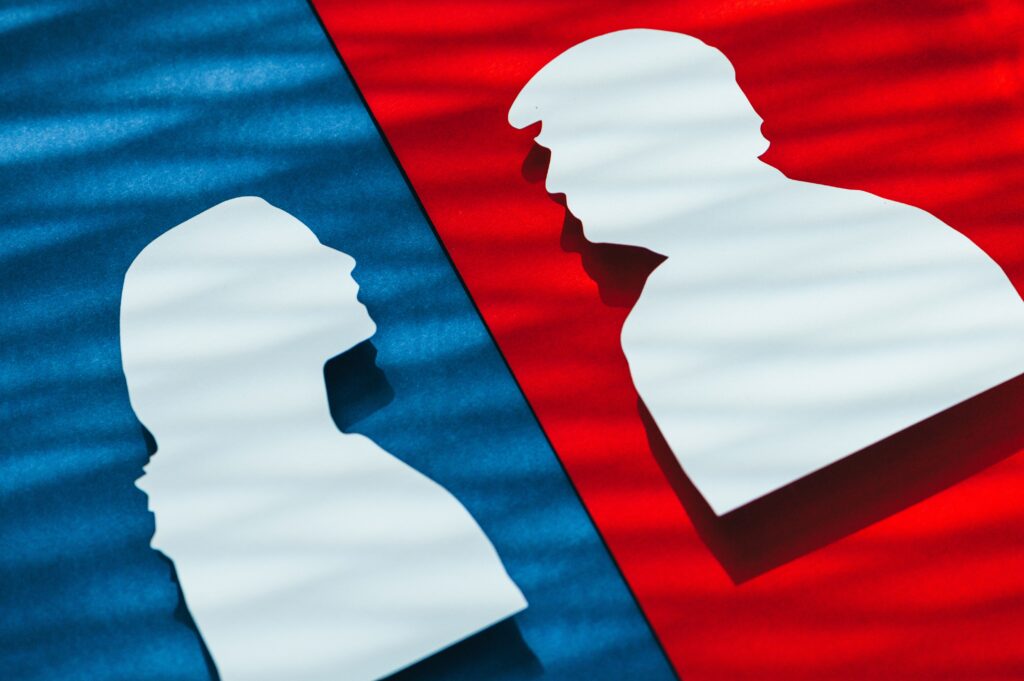The Peninsula
Harris and Trump Debate America’s Economic Vision

While Tuesday night’s presidential debate between Vice President Kamala Harris and former President Donald Trump affirmed what we already know about the candidates’ stances on economic policy, it also helped narrow down the key economic issues on the docket.
From the outset, both candidates offered their own respective visions to stabilize economic unpredictability. The Harris plan for an “opportunity economy” seemed to focus squarely on domestic issues—including a $6,000 child tax credit, $25,000 first-time homebuyer down payment assistance, and a $50,000 tax deduction to start-up small businesses.
Meanwhile, Trump’s economic vision remained externally focused, doubling down on America’s trade with the world. The long running US trade deficit, which stood at $773.4 billion in 2023, was used as an overall benchmark to measure economic performance and justify tariffs against other countries. Trump responded to questions about his plan to introduce tariffs up to 20 percent on all imported goods, stating that “other countries are going to finally, after 75 years, pay [the United States] back” and indicated that tariffs would be “substantial.”
For what it is worth, the moderators noted that the Biden administration had continued many of Trump’s earlier tariffs, which raises questions about whether a Harris administration would take a different stance on US-China trade, or tariffs in general. While Harris touched on the fact that Trump’s term ended with an expanded trade deficit, she remained opaque on the Biden-Harris administration’s relationship with the continued tariffs.
Instead, she turned to US trade and production in strategic industries such as semiconductors, and while highlighting China’s role in the strategic competition for computer chips stated that a policy toward China should be “making sure the United States of America wins the competition for the 21st century.” In the process, she signaled the importance of “focusing on relationships with [US] allies” and “investing in American based technology,” both of which have implications for Korea and other countries investing heavily into high-tech US industries.
While the candidates went on to diverge on immigration, social issues, and abortion, they seemed to converge on aspects of energy policy—in particular the US relationship with natural gas and other petroleum fuels. Trump’s official plan under the 2024 Republican National Committee policy platform aims to “increase energy production across the board, streamline permitting, and end market-distorting restrictions on oil, natural gas, and coal.” Trump went on in the debate to warn about the status of fossil fuel energy sources under a Harris administration. Nonetheless, Harris reiterated that she “will not ban fracking” and instead called for “investing in diverse sources of energy” to limit US dependence on foreign oil, appearing to find some commonality with Trump’s policy.
This turns the attention to a whole other aspect of America’s trade with its partners. Beyond tariffs and trade deficits, of all the topics discussed during the debate, the next US administration’s approach toward energy could form one of the more consequential issues for the US-Korea trade relationship. The removal of the crude oil export ban in 2015 has since made the United States a net energy exporter. This has allowed the United States to become a significant source of both liquified natural gas (LNG) and crude oil for Korea, which relies on foreign imports to supply the non-renewable portion of its energy portfolio—particularly as natural gas finds a role as a transitional fuel. Depending on how either candidate fleshes this out, it could mean some degree of stability for the US-Korea energy relationship.
On tariffs, trade, or technology, all in all, both candidates offered glimpses of where Korea and other partners might fit into US policies. Time will have to tell how these positions may be maintained through November and beyond.
Tom Ramage is an Economic Policy Analyst at the Korea Economic Institute of America. The views expressed here are the author’s alone.
Photo from Shutterstock.
KEI is registered under the FARA as an agent of the Korea Institute for International Economic Policy, a public corporation established by the government of the Republic of Korea. Additional information is available at the Department of Justice, Washington, D.C.
